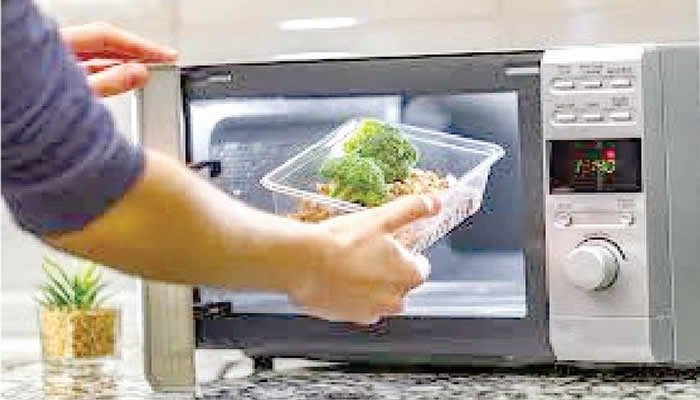Highlighting concerns about the potential transfer of harmful substances from plastic into food, nutrition experts discourage the practice of microwaving food in plastic containers. They caution that this practice poses health risks, including the potential development of certain types of cancer.
Other health concerns associated with this practice include endocrine disruption, fertility issues, as well as metabolic and neurological disorders. The experts emphasize that while microwaves are generally safe for heating food, using plastic containers in the microwave can increase the likelihood of substance transfer.
Leaching refers to the migration of chemicals from the plastic material into the food stored within it. Professor Olugbenga Ogunmoyela, a Food Science and Technology expert, mentions chemicals like bisphenol A (BPA) and phthalates as potential substances that may leach into food from plastic containers, especially when exposed to high temperatures.
The professor clarifies that even though some plastic containers are labeled as “microwave-safe,” this designation primarily indicates their ability to withstand microwave heat rather than their safety for human health.
He warns that continuous use of plastic containers for heating food can lead to an increased exposure to chemicals linked to health risks, such as cancer, endocrine disruption, fertility issues, and metabolic disorders. Research has shown the presence of plastic particles in human tissues not typically containing them, raising concerns about potential health implications.
He further explains that heating plastic containers, especially for prolonged periods or at high temperatures like in a microwave, can cause chemicals to leach into the food, potentially compromising its safety. Research studies have demonstrated that microwaving plastic containers can release microplastics and volatile organic compounds, which can affect food safety.
Repeatedly using plastic containers for microwave heating may also result in the migration of additives that disrupt the body’s metabolism and hinder nutrient absorption. Certain types of foods, like those high in fat, acidity, or salt, are more prone to absorbing chemicals from plastic containers when heated.
Experts recommend using microwave-safe containers made of glass, ceramic, or designated microwave-safe plastics to reheat food. These materials are less likely to leach harmful substances into food and are considered safer options for food reheating compared to regular plastic containers. Additionally, using a damp paper towel or parchment paper instead of plastic wraps when covering food for reheating can help mitigate the risk of chemical migration.














Leave a Reply